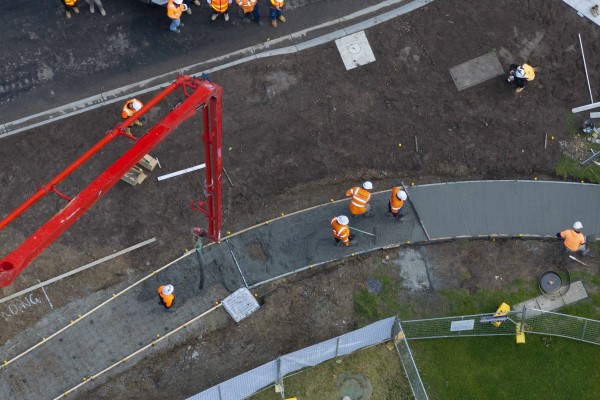Coffee concrete debuts in major infrastructure project

An innovation developed at RMIT University has been used for the first time in its major infrastructure project after being laid into a footpath along a busy road in Pakenham, a part of Victoria’s Big Build.
Major Road Projects Victoria (MRPV) and project contractor BildGroup used concrete mixed with biochar made from spent coffee grounds in the Pakenham Roads Upgrade, replacing a portion of the river sand normally used in the mix.
RMIT postdoctoral research fellow and lead inventor of the coffee concrete Rajeev Roychand says he was excited to partner with BildGroup and MRPV for the translation of the RMIT team’s research into the state government’s Big Build projects.
“This proactive support plays a significant role in creating a potential for diverting all forms of biodegradable organic waste, which is currently ending up in landfills and contributing to 3% of Australia’s greenhouse gas emissions,” Rajeev says.
Globally, 10 billion kilograms of spent coffee is generated annually, which could replace up to 90 billion kilograms of sand in concrete.
Australia generates 75 million kilograms of ground coffee waste every year, with most of it going to landfills, when this could replace up to 655 million kilograms of sand in concrete because it is a denser material.
In this project, Earth Systems converted five tonnes of spent coffee grounds, about 140,000 coffees worth of grounds, into two tonnes of useable biochar which was then laid into the 30m3 footpath along McGregor Road in Pakenham.
The use of coffee biochar is one of several circular economy initiatives delivered for the Pakenham Roads Upgrade that include reusing the in-fill soil and material for the Princes Freeway embankments and using foam bitumen and rubber tyre road barriers.
RMIT is currently engaging with a commercialisation partner and with companies in the construction and agriculture sectors that would potentially benefit from using biochar products.
